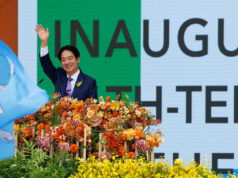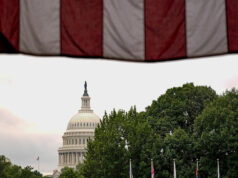Portfolio investments flow out as geopolitical concerns weigh
By Melissa Luz T. Lopez,
Senior Reporter
MORE FOREIGN CAPITAL fled the country in August to reverse two straight months of inflows, the Bangko Sentral ng Pilipinas (BSP) said, as the yearly “ghost month” superstition, the bloody drug war, and other geopolitical concerns spooked investors.
Foreign portfolio investments to the Philippines posted a $57.51- million net outflow last month, which reversed the $206.47 million in net capital retained in July as well as the $427.07 million tallied a year ago.
Such flighty capital are often called as “hot money” given the ease by which these funds enter and leave markets.
Market players plucked out more funds from the country amid worries on the “reinvigorated anti-drug campaign” of the Duterte administration, as well as rising geopolitical tensions between North Korea and the United States, the BSP said in a statement sent yesterday.
Foreign players placed as much as $936 million in the Philippines last month, but was cancelled out by the $994 million which headed out. These compare to the $1.434 billion invested in July, which was partially offset by withdrawals worth $1.228 billion.
Investors also opted to bring more funds out amid mixed corporate earnings reports for the second quarter, alongside alleged anomalies at the Bureau of Customs, the BSP said. These added to the usual “ghost” month woes in the market, which traditionally sees thin trading as superstition dictates that the season is bad for making any big-ticket investments.
In particular, withdrawals peaked between Aug. 14-18 as $329.01 million worth of capital headed out.
Reports of minors killed along the streets of Manila surfaced in August, which escalated concerns over the bloody crackdown on illegal drugs and crime which is the centerpiece of President Rodrigo R. Duterte’s platform of governance.
This came alongside the discovery of P6.4 billion worth of smuggled shabu shipments which entered the country that merited a Congressional probe and eventually led to the resignation of Customs Commissioner Nicanor E. Faeldon.
Outside the country, tensions between Pyongyang and Washington escalated after North Korea launched a missile towards Japan, a known US ally.
About 84.9% of the investments registered that month went into shares of listed firms, mainly to banks; holding companies; food, beverage, and tobacco firms; property companies; and transportation services companies, the BSP said.
Meanwhile, 15.1% of the inbound flows went into government-issued debt papers which yielded net outflows.
Bulk of the flighty investments came from the United Kingdom, the United States, Luxembourg, Malaysia, and Hong Kong. However, nearly 80% of the outbound investments went back to the US, which is still considered as safe haven.
The August print brought the year-to-date tally to a $318.88-million net outflow, a turnaround from the $1.974 billion in retained foreign capital tallied during the same period in 2016.
The central bank expects a $900-million net outflow for the entire year, citing that continued geopolitical threats and policy uncertainty both locally and overseas dampen investor appetite towards the Philippines. However, BSP Deputy Governor Diwa C. Guinigundo said last week that portfolio flows could recover amid expectations that exports will remain growing and as economic activity stays robust.



